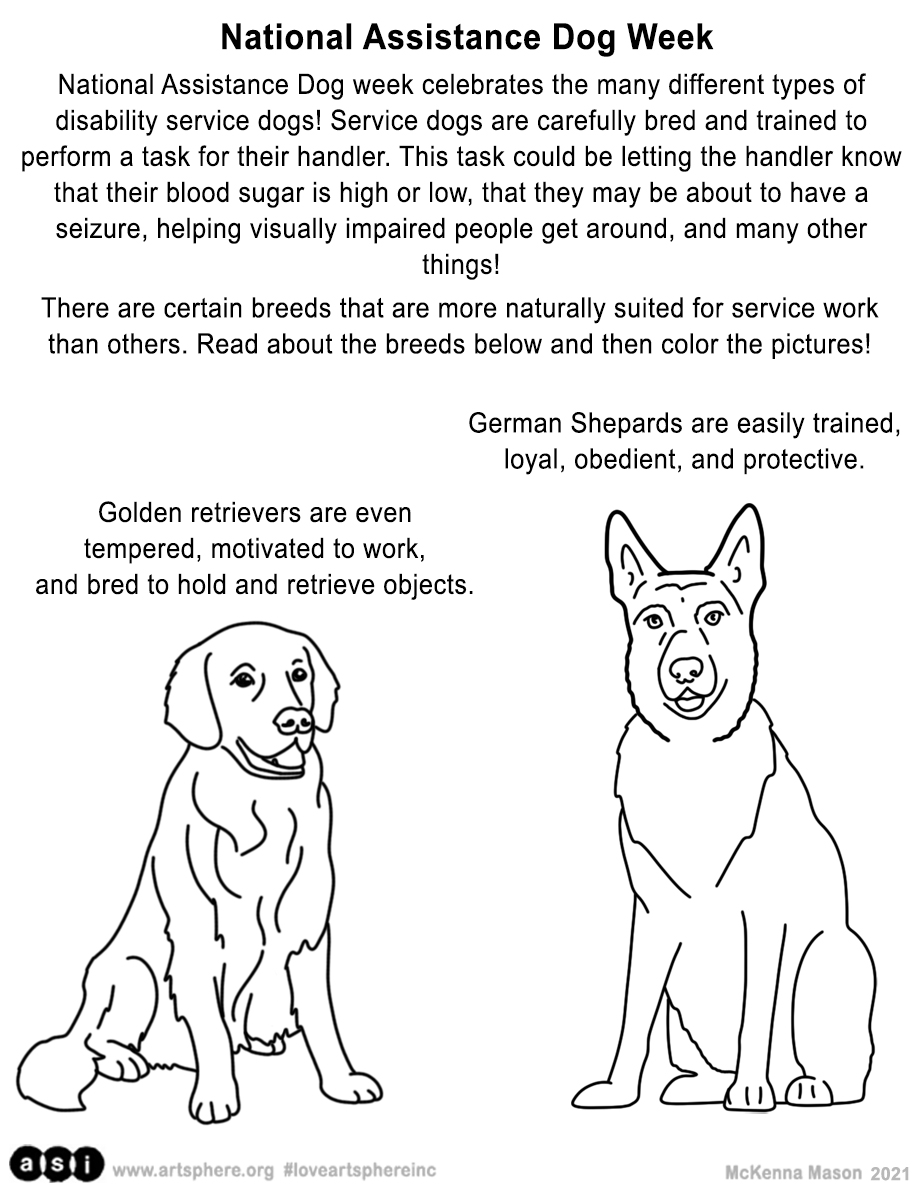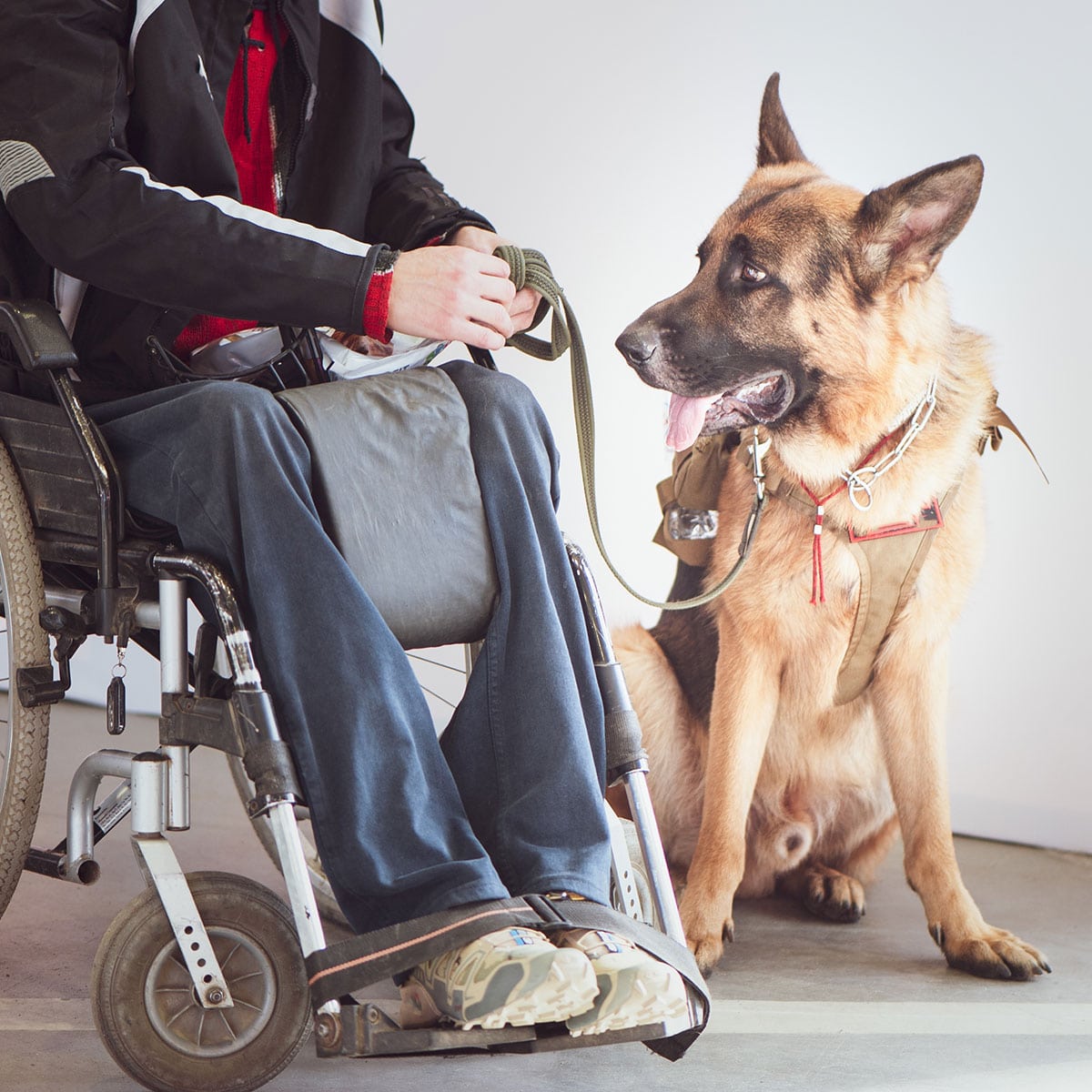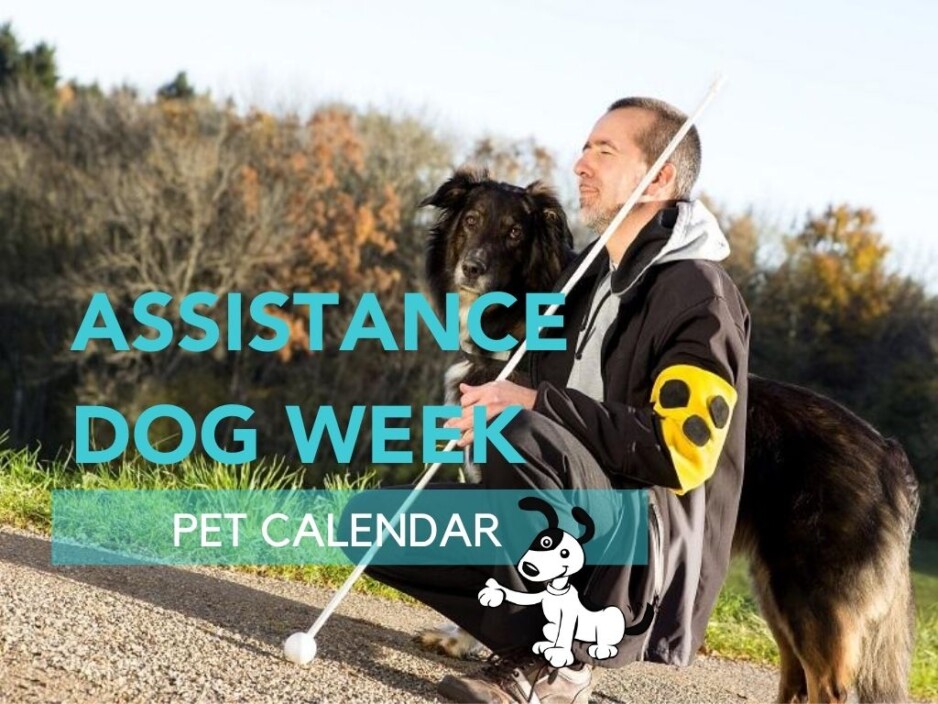Introduction to International Assistance Dog Week
History of International Assistance Dog Week
International Assistance Dog Week, held annually from August 1st to 7th, celebrates the extraordinary work of assistance dogs that transform the lives of individuals with disabilities. The initiative was started in 2009 by Marcie Davis, a paraplegic and service dog advocate, to raise awareness about the roles of these incredible animals.
Importance of recognizing assistance dogs
Recognizing assistance dogs is crucial as they provide invaluable support and companionship to individuals with disabilities, enhancing their independence and quality of life. These specially trained dogs perform a range of tasks from guiding the visually impaired to alerting those with hearing impairments, and even providing emotional support to those suffering from mental health conditions. By acknowledging their contributions, we honor the bond between humans and these loyal, hard-working animals.

Guide Dogs
Guide dogs are trained to assist individuals with visual impairments by safely navigating them through various obstacles and environments. They undergo rigorous training to become their handler’s eyes, providing a sense of independence and mobility that would otherwise be challenging to achieve.
Service Dogs
Service dogs are specially trained to perform specific tasks that help individuals with disabilities overcome daily challenges. From alerting those with hearing impairments to retrieving items for individuals with mobility issues, service dogs play a crucial role in enhancing the quality of life for their handlers. Their presence offers emotional support and physical assistance, contributing significantly to the well-being of those they assist.

Training process for assistance dogs
Certification requirements for assistance dogs
Blog Section:When it comes to the training and certification of assistance dogs, it is crucial to understand the dedication and effort that goes into preparing these remarkable animals for their life-changing roles.
Training process for assistance dogs
Assistance dogs undergo extensive and specialized training to ensure they can fulfill their designated tasks effectively. This training typically involves learning specific commands, tasks, and behaviors tailored to the needs of their handlers. From guide dogs assisting the visually impaired in navigating obstacles to service dogs aiding individuals with disabilities in their daily routines, each canine companion undergoes rigorous training to meet these criteria.
Certification requirements for assistance dogs
Certification requirements for assistance dogs vary depending on the organization and the type of assistance they provide. Organizations often evaluate the dog’s behavior, skills, and overall performance to determine if they meet the necessary standards for certification. This certification process ensures that assistance dogs are well-prepared and capable of delivering the support and help required by their handlers.

Physical benefits
Emotional support benefits
Blog Section:Looking beyond the training and certification aspect, assistance dogs bring a plethora of benefits to the individuals they support. In terms of physical benefits, these remarkable animals offer aid in mobility, balance, and even medical alert services like detecting seizures or changes in blood sugar levels. The presence of an assistance dog can significantly enhance the overall well-being of their handlers.Moreover, the emotional support benefits provided by assistance dogs are invaluable. They offer companionship, reduce stress and anxiety, and provide a sense of security and comfort to those in need. The bond formed between assistance dogs and their handlers goes beyond words, creating a unique and supportive relationship that fosters independence and confidence.

Laws protecting assistance dog handlers
Proper etiquette around assistance dogs
Blog Section:When it comes to assistance dogs, handlers have specific rights and responsibilities that ensure both the well-being of the handlers and the dogs themselves. Laws are in place to protect the rights of assistance dog handlers, allowing them full access to public spaces and accommodations. It’s important for individuals to understand these laws to prevent discrimination against handlers and their assistance dogs.Furthermore, proper etiquette around assistance dogs is crucial. It’s essential to respect the working status of these dogs and not distract or interfere with them while they are performing their duties. By following proper etiquette, individuals can help maintain the focus and effectiveness of assistance dogs in supporting their handlers.
Events and activities
Ways to show appreciation for assistance dogs
Blog Section:When recognizing International Assistance Dog Week, it is crucial to celebrate the incredible bond between assistance dogs and their handlers. Engaging events and activities are organized during this week, shedding light on the valuable role these dogs play in the lives of individuals with disabilities. From educational seminars to fun runs, these events aim to raise awareness and appreciation for these specially trained animals.One of the best ways to show appreciation for assistance dogs is by spreading awareness about their importance in society. Small gestures like sharing their stories on social media or volunteering at local assistance dog organizations can make a significant impact. By recognizing and honoring the hard work of these amazing animals, we can support their handlers and promote inclusivity in our communities.

Promoting awareness and advocacy for assistance dogs
Blog Section:When it comes to supporting assistance dog organizations, there is a crucial need for promoting awareness and advocacy for these incredible animals. By sharing their inspiring stories and highlighting the vital role they play in the lives of individuals with disabilities, we can increase understanding and respect for assistance dogs and their handlers. Engaging in activities such as participating in fundraising events or donating to organizations that train and support these dogs can make a significant impact. Spreading the word about the importance of assistance dogs through social media platforms and community events can help educate others and encourage support for these invaluable companions. Together, let’s continue to celebrate and show appreciation for the unwavering dedication of assistance dogs and their life-changing impact.

